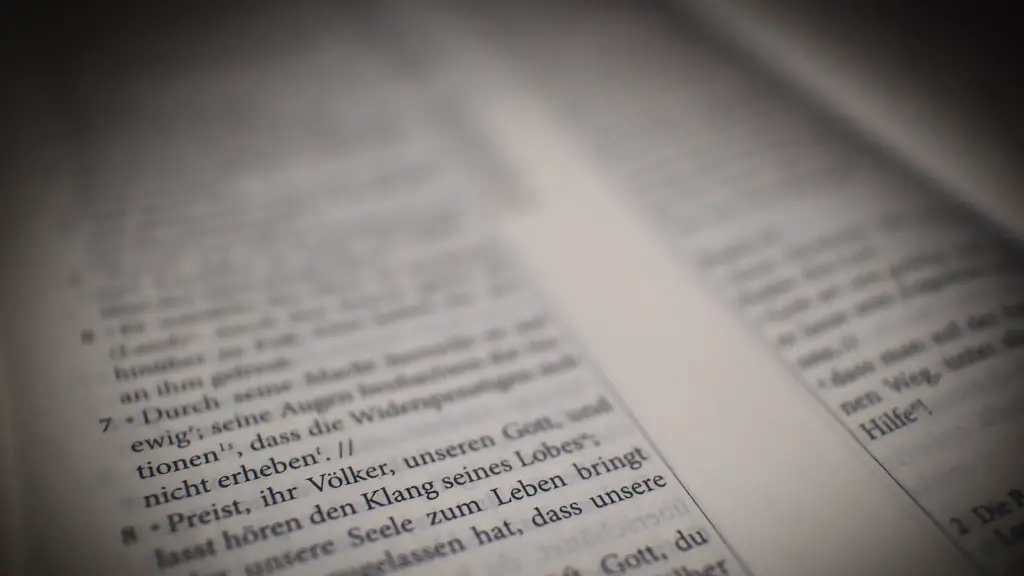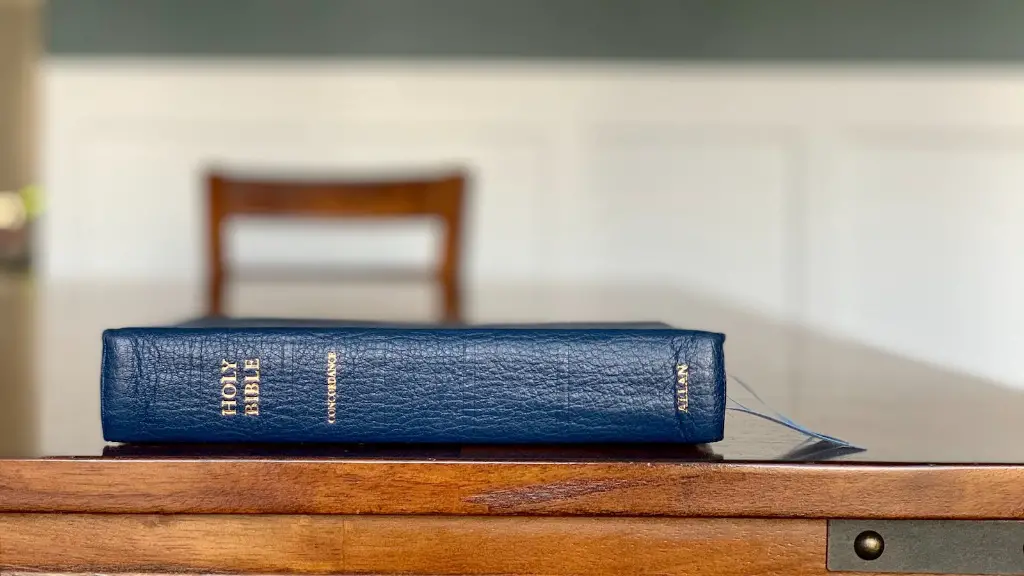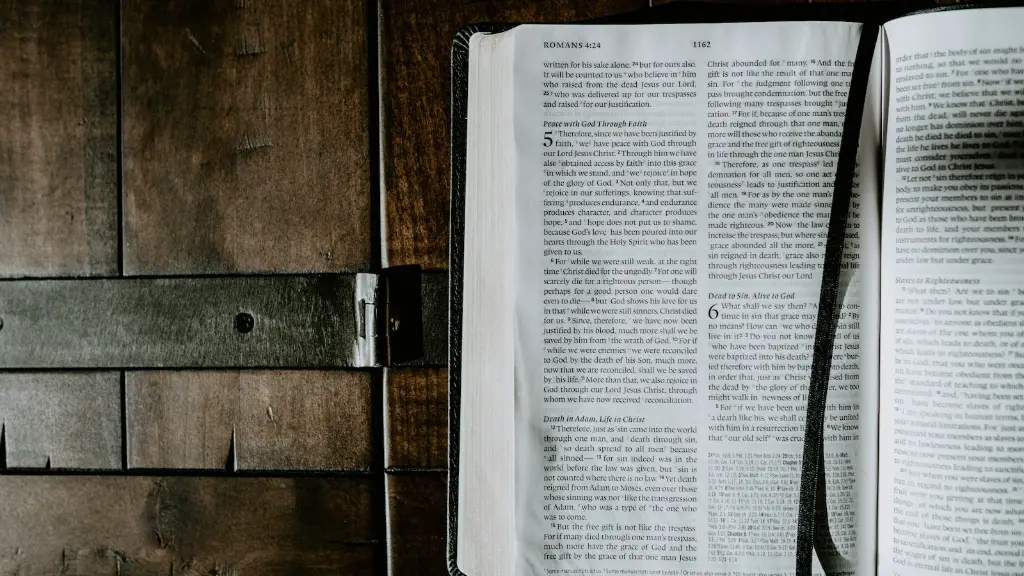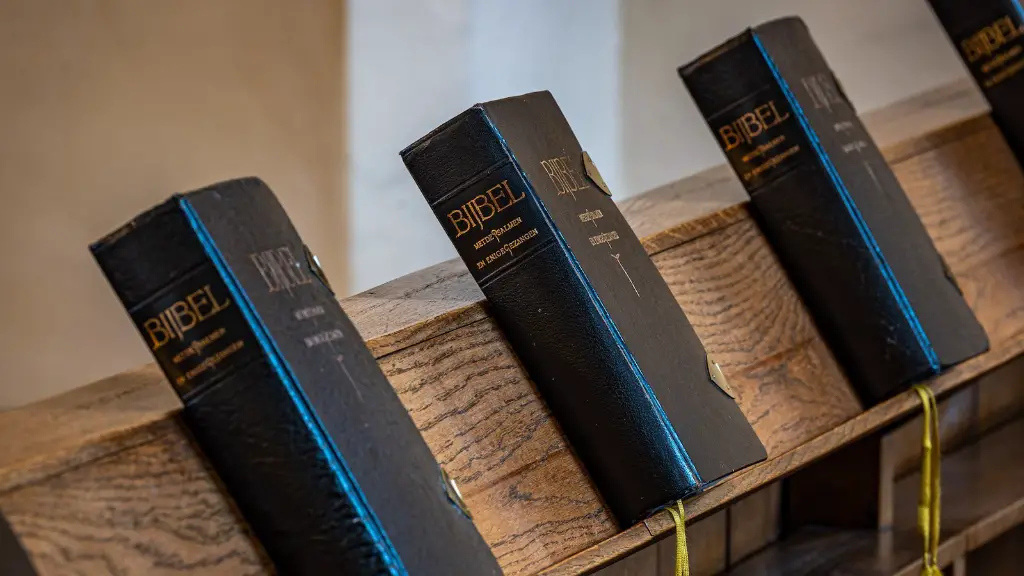The book of Ecclesiastes is a book of the Hebrew Bible. The English title comes from the Greek translation of the Hebrew title, Kohelet. The author, “the Preacher,” is introduced in the first verse. The work consists of an autobiographical reflection by the Preacher on the meaning of life and death from the perspective of wisdom.
The book of Ecclesiastes was written by King Solomon.
Did Solomon wrote the book of Ecclesiastes?
Solomon was a king of ancient Israel who was known for his wisdom. He is credited with writing three books of the Bible: Proverbs, Ecclesiastes, and Song of Songs. Solomon’s wisdom was renowned throughout the ancient world, and his writings continue to be studied and admired today.
Ecclesiastes is a book of the Bible that addresses the pain and frustration that comes from observing the distortions and inequities in the world. It highlights the uselessness of human ambition and the limitations of worldly wisdom and righteousness. This book is a reminder that our hope and satisfaction come from God, not from the world.
Who wrote Ecclesiastes 3 and why
The book of Ecclesiastes is a book of wisdom literature that contains philosophical speeches by a character called ‘Qoheleth’ (“the Teacher”; Koheleth or Kohelet). The book is composed probably between the fifth and second centuries BC. Peshitta, Targum, and Talmud attribute the authorship of the book to King Solomon.
The book of Ecclesiastes is a book that explores the futility of life without God. Qoheleth provides a series of speeches that address the vanity of earthly pursuits such as wealth, pleasure, and power. Qoheleth ultimately concludes that the only thing that truly matters is a life lived in accordance with God’s will.
While the book of Ecclesiastes is sometimes difficult to understand, it ultimately provides a powerful message about the importance of living a life that is focused on God.
The book of Ecclesiastes is one of the most unique books in the Bible. It is a book of wisdom, written by a man who was obviously very intelligent and had a deep understanding of life.
The author, who is probably King Solomon, begins by saying that he has tried everything that life has to offer, and has found it all to be meaningless. He has experienced both the good and the bad that life has to offer, and has come to the conclusion that it is all vanity.
This may sound like a negative and depressing way to start a book, but the author is not trying to be negative. He is simply being honest about his observations.
Throughout the book, the author gives practical advice on how to live a wise and fulfilling life. He teaches that we should enjoy the good things that life has to offer, but not to get too attached to them, because they will all come to an end.
The book of Ecclesiastes is a unique and insightful look at the human condition. It is full of wisdom that is still relevant today. If you have never read it, I highly recommend it.
Who is Ecclesiastes talking about?
The narrator of Ecclesiastes is a nameless person who calls himself a “Teacher,” and identifies himself as the current king of Israel and a son of King David. The Teacher opens with the exclamation, “Vanity of vanities! All is vanity” (1:2).
The narrator goes on to explore the futility of life, considering various topics such as wisdom, pleasure, work, and wealth. Ultimately, the Teacher concludes that the only thing that is truly meaningful is to fear God and keep His commandments (12:13-14).
The book of Maccabees is one of the 16 apocryphal books of the Bible that was omitted from the Bible by the Protestant Church in the 1800’s. This book is as true today as it was in the 1800’s before being omitted from the Bible. The book of Maccabees tells the story of the Maccabean Revolt against the Seleucid Empire. This revolt was led by the Maccabees, a Jewish family who fought against the Seleucid Empire in order to preserve their religious freedom. The book of Maccabees is a story of courage, determination, and faith.
What does Ecclesiastes teach us about life?
In Ecclesiastes, the Teacher explores the meaning of life and searches for lasting value in this life. He considers wisdom, knowledge, pleasure, work, and time, but comes away from his search with a cynical and unsettling view: life is meaningless. The Teacher’s view is that wisdom, knowledge, and pleasure are all fleeting and can never provide lasting value or satisfaction. Work is a necessary evil, and time is an enemy that can never be defeated. In the end, the only thing that truly matters is our relationships with other people. The Teacher’s outlook is pessimistic, but his advice is still useful: we should enjoy life while we can and make the most of our relationships with others, because they are the only things that will last.
It is sad but true that everyone must face death eventually. And in the meantime, people’s hearts are full of evil. There is little we can do to avoid this dark reality.
What lessons do we learn from the book of Ecclesiastes
Ecclesiastes is a book in the Bible that encourages us to live life to the fullest. It shows us that work and play are both important, and that we should enjoy both. Wealth and possessions are not as important as we may think, and that wisdom and productivity are key to a happy and fulfilling life.
Solomon was a great king who was loved by God because of his wisdom. He was able to rule his people well and guide them with the help of his wisdom. Even though he had many material things, he still chose to ask for wisdom from God. This just goes to show how great of a king he was.
What is the conclusion of Ecclesiastes?
The conclusion of the matter is that we should fear God and keep His commandments. This is the whole duty of man. For God will bring every deed into judgment, including every hidden thing, whether it is good or evil.
The title is generally thought to mean “preacher” or “teacher”, though some scholars think it may mean “assembly” or “gathering of the people”. The author of the book is unknown, but it is traditionally attributed to Solomon.
The book consists of philosophical reflections on life, morality, and death. The author offers no clear resolution to the dilemma of life’s meaninglessness, but instead suggests that life is to be enjoyed and lived to the fullest.
Ecclesiastes is a unique book in the Hebrew Bible, and has been the subject of much debate and interpretation over the centuries. It is a fascinating read for anyone interested in philosophy or religion.
What is the first lesson from Ecclesiastes
The Teacher of Ecclesiastes is definitely on to something when he warns against living a life caught up in the pursuit of empty pleasures. This is because, at the end of the day, these kinds of pleasures have no lasting value and won’t do anything to make our lives meaningful. The Teacher is right in reminding us that, without God at the center of our lives, we will never find true meaning or purpose. This is because, no matter how wise or rich or successful we may be, we cannot find lasting fulfillment without God.
The book of Ecclesiastes is a book of wisdom literature that explores the nature of human existence and the meaning of life. The author, Qoheleth, is believed to be a sage or wise man who collected wisdom sayings and assembled them into this book. The book’s more common name, Ecclesiastes, is an approximate translation into Greek of the Hebrew word Qoheleth.
What is Solomon trying to say in Ecclesiastes?
What a wonderful truth it is that we cannot discover anything about our future! We are so limited in our knowledge and understanding, but God knows everything. It is such a comfort to know that He is in control and that He will take care of us.
In the 16th century, Martin Luther argued that many of the received texts of the New Testament lacked the authority of the Gospels. He proposed removing a number of books from the New Testament, including Hebrews, James, Jude, and Revelation.
Warp Up
The book of Ecclesiastes was written by King Solomon.
There is no definitive answer to this question, as the author of Ecclesiastes is anonymous. However, many scholars believe that the book was written by King Solomon, due to its similarities to other works attributed to him. Others believe that the author was a different contemporary of Solomon, writing in a similar style. Ultimately, the true identity of the author may never be known for certain.





